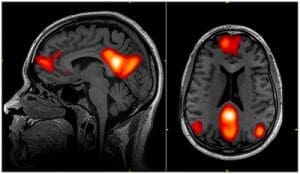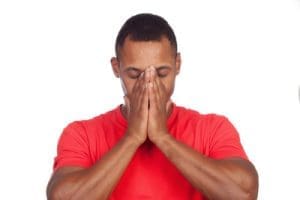
What you need to know
You can get away with it with your car: “I don’t care how the brakes work, just fix ‘em.” That won’t fly with emotional and mental illnesses. We need to try to understand how our brain works, especially the anatomy and physiology that generate our misery.
How important is it? Some scientists have referred to the DMN as the neurological basis for self.
That three-pound mass of tissue and liquid in our skulls: 86 billion neurons making one quadrillion neural connections at 270 miles per hour.
So much of how we operate is generated by ages old anatomical and physiological networks. For those enduring emotional and mental illnesses, the default mode network needs to be understood.
Intro
In an article I wrote several years ago, The thoughts keep coming: 10 ways to manage rumination, I pointed out that ruminative thoughts are associated with increased default mode network connectivity.
I hinted that an article on the default mode network was coming and finally, here we go.
What is the default mode network?

Default mode network (functional MRI)
The default mode network (DMN) is a large-scale network composed of several areas of the cerebral cortex in the prefrontal, parietal, and temporal regions.
How important is it? Some scientists have referred to the DMN as the neurological basis for self.
The DMN is active when we’re not focused on anything in particular, the brain being at wakeful/passive rest. So the DMN is humming along in the background when we’re engaging in introspective, non-demanding activities such as daydreaming and mind-wandering.
And the wonder of it all is the brain – mind – handles the shift to default mode and we don’t even know it.
Functions of the default mode network
When the DMN is active, here are some of the functions it’s involved in…
- Memories of events and facts pertaining to self
- Referring to descriptions and traits of self
- Thinking about one’s emotional state
- Understanding the emotions of others and empathizing with their feelings
- Determining if an action was right or wrong
- Perceived lack of social interaction
- Recalling past events from memory
- Picturing what the future may bring
- Understanding and remembering a narrative
- Perception of beauty with a deep feeling of pleasure and personal identity
- Creativity
Can you see why the DMN has been referred to as the neurological basis for self? And can you see why we need an active DMN?
But things get interesting in the emotional and mental illness neck of the woods when the DMN is hyperactive, and when it butts heads with other brain networks.
Let’s go there…
The default mode network and emotional and mental illness
The DMN is at play in numerous emotional and mental illnesses including Alzheimer’s disease, autism spectrum disorder, schizophrenia, major depressive disorder, ADHD, PTSD, Parkinson’s disease, and chronic pain.
For explanation purposes, let’s use major depressive disorder (MDD). As I mentioned, rumination, both a symptom and cause of depression, is associated with increased DMN connectivity and dominance over other brain networks during rest.
I noted in the rumination article that psychiatrist Dr. Chris Aiken believes changing the rumination habit can double the chances of depression recovery.
And why not? Reference the functions the DMN is involved in. Makes sense that altered DMN connectivity would change the way a person recalls past events, perceives themselves and their emotional state, and pictures what the future may bring. All of them can increase depression susceptibility.
And let’s not forget about rumination’s involvement in presentations of anxiety, OCD, and bipolar mania. If it’s rumination, it’s associated with the DMN.
Finally, the DMN is more active in the brains of lonely people. After all, they’re likely to be frequently thinking about what happened in the past and what may occur in the future. So much worry, anxiety, and dread.
How to manage the default mode network


“Okay, we know what’s happening upstairs. We can manage this.”
Before we get into how to manage the DMN, let’s lay a foundation. The goal is to disengage – quiet – the DMN, making it less active. To clarify, allowing the DMN to be overactive means signing up for a ton of introspection. And that can get us into a lot of trouble.
Again, we need DMN engagement for a sense of self, but if we don’t disengage when indicated, we’re in for an unpleasant ride.
Now, as we discussed earlier, the brain activates the DMN beneath our conscious awareness. However, as we learn to recognize the signs and symptoms of an overactive DMN, we can intervene and calm it down. May not happen overnight, but with practice and persistence, change can occur.
Ways to manage the default mode network
Okay, here are some ways to manage the DMN…
- Relaxation and mindfulness techniques – even deep breathing
- Meditation
- Psychotherapy
- Antidepressant medications
- Physical activity and exercise
- Experiences of awe: hiking to a mountain top, watching the moon rise, swimming in the ocean, etc.
- Using the DMN image above, visualize the colors fading, as you’re calling on your DMN to settle down
And be sure to reference the rumination management techniques mentioned in the article. Since the DMN generates rumination, surely some of them apply to DMN management.
Bottom-line: this is all very much about taking ourselves out of our heads. I mean, enough’s enough, right?
Lasting relief
Don’t we wish it was like a car: get it fixed without having to learn about what went wrong. But when it comes to the mind, it’ll never be that easy.
Lasting relief for the emotional and mental illnesses comes with understanding the anatomical and physiological goings on that cause them. And managing the default mode network is a great example.
Again, be sure to read The thoughts keep coming: 10 ways to manage rumination. And don’t forget about the Chipur info and inspiration titles.
Info sources: Psychology Today, Dr. Chris Aiken: Overthinking, Worry, and Rumination, Default mode network image: Wikimedia Commons: public domain


After a decades-long battle with panic, generalized anxiety, fluctuating moods, and alcohol dependence; Bill finally found his life’s passion and work – lending a hand to those in the same boat. At age 49 he hit grad school and earned his counseling credentials. And he continues his service through Chipur and other projects.



